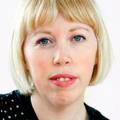
A MUM has described the "miraculous" change in her daughter's health after being helped by a Glasgow service that is the only one of its kind in Scotland.
The William Quarrier Scottish Epilepsy Centre (WQSEC) is considered world-class in the assessment and diagnosis of the condition.
It is the only residential assessment and treatment centre in Scotland for adults with epilepsy, which has earned it national and international recognition.
Past and present patients gathered, alongside key figures from the centre and invited guests including Humza Yousaf MSP, to celebrate its success.
Eleanor Ferguson, mother of former patient Rachel Ferguson who was born with a learning disability, spoke at the event about the transformative effect the service had on her daughter.
When Rachel was admitted she had very limited mobility but following close observation, specialists at the WQSEC recommended introducing a new medication and significantly reducing another drug which her mother said has had “miraculous” results.
She said: “She is now walking upright, her face is alert and animated again and the drooling and tremor in her arm has stopped. “People who know Rachel can’t believe the difference.
“She has far fewer seizures and is now much more active and has built up her strength. She has more energy and is able to enjoy being out in the evenings again. She can even walk up to two-and-a-half miles with support, and enjoys swimming and trampolining. Above all, she is able to enjoy her life again.
“The improvement in Rachel’s condition is miraculous.”
Around 63,400 or 1 in 220 people under 18 in Scotland suffer from epilepsy with 154,000 or 1 in 67 affected over the age of 65.
Professor Ian Bone, a world-renowned former neurologist, said: “We simply cannot underestimate the clinical significance of the William Quarrier Scottish Epilepsy Centre.
“To have such a valuable resource on our doorstep that is a beacon of excellence for the world-wide epilepsy community is a clear demonstration of how the third sector and NHS can work together to provide outstanding patient care and outcomes.”
Gerard Gahagan, head of service, added: “The epilepsy that our patients live with is the most complex to treat or diagnose and their condition is often accompanied by significant co-morbidities and additional support issues, including learning disabilities. “It is vital that Scotland has a service that is dedicated to this.”



Comments & Moderation
Readers’ comments: You are personally liable for the content of any comments you upload to this website, so please act responsibly. We do not pre-moderate or monitor readers’ comments appearing on our websites, but we do post-moderate in response to complaints we receive or otherwise when a potential problem comes to our attention. You can make a complaint by using the ‘report this post’ link . We may then apply our discretion under the user terms to amend or delete comments.
Post moderation is undertaken full-time 9am-6pm on weekdays, and on a part-time basis outwith those hours.
Read the rules here